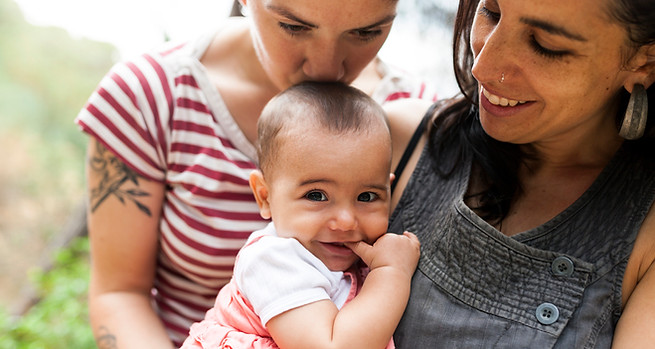
0-3 months
Get in the right mindset
Babies are hugely capable, and so are you! I want you to believe in yourself and your abilities to guide your baby to get to know each other and what to do.
It's about ease and flexibility
Babies are very keen and forgiving learners so you can practice a few times a week or many times a day, starting from birth or later - there are countless opportunities.
Even if you have more going on in life than most, you can do this in a way that fits your situation and preferences. Some caregivers and their babies practice occasionally, others at specific routine times (e.g. upon waking, after a meal, mornings-only, home-only, weekends-only) and others as often as they can or want. It's entirely normal to fluctuate between these as circumstances and moods change, but all of it helps build understanding.

Its about communicating
You and your baby communicate all the time with simple sounds, gestures and actions. Recognizing their urge to go to the toilet is no different to recognizing cues for tiredness or hunger. Even the youngest newborn can sense the urge to pee/poo and can express it in some way. Some babies give signals beforehand or during, while others are too subtle to detect. Therefore, most caregivers take the lead and offer toilet opportunities by based on a sense of routine and intuition after having observed and reflected on their babies toileting patterns. Your practice might be more routine based rather than communicative - just make it work for you.
Babies are watching and listening to what we do all the time and taking in much more than we think. We can support their learning by talking to them before, during and after a toilet opportunity. If you let them know beforehand, then make a sound when you've got them in position and its good to go, and then acknowledge what's happening they'll feel reassured. As your baby grows you may also like to talk to them when you go to the toilet, or signal their stuffed toys as a game, or even read children's books on the topic.

It's about relaxation and fun
Because this process relies on your baby having to relax to release their pee or poo, it only works if it is done in a respectful, gentle and, most importantly, a non-coercive way. There are no expectations, no power struggles. To 'go' in a potty or toilet will only come easily for a baby that feels safe and loved in that moment. It's a relatively private process and each time they go is evidence of the trust they have in you and your help.
Toilet practice is a great one-on-one bonding activity that you can make fun. If you sit your baby on a potty and nothing happens then that is not a failed moment. If you don't get hung up about whether a pee or poo happens, you will see it is the act of offering an enjoyable toilet opportunity that counts as the win. If your baby wants to go they'll go. If they don't, they'll wriggle and squirm, and its your job to listen and offer to try again later.

It's about self-esteem and independence
Usually, toilet trained is described as doing the whole act independently, but with toilet learning a baby is considered a graduate when you, together, are having very few or no misses. Being fully capable of getting undressed, seated and redressed can come later as those skills develop. In comparison, a weaned child often still needs prompts for when to eat and help cutting up food. You are there to gently assist as long as needed.
Getting out of nappies earlier than usual is common but not the goal. There is no best age for having no misses or full toileting independence, just as there is no set age for rolling over, walking or talking. No matter at what age the reach these milestones it is very likely you will have used less nappies than you would have otherwise and that your child is very bodily aware and proud of their toileting accomplishments.

